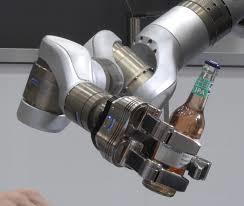People could be forgiven for thinking the evolution of the tangible - like steel mills - to the intangible - like software - was the endgame of the tech revolution.
After all, how much more dramatic does this need to be? Hard assets becoming fungible pawns in a global game of value migration while all that soft stuff that serious people once assigned to sons-in-law lacking advanced skills suddenly erupted in ways that resulted in young dudes leading enterprises whose names you have trouble pronouncing making more money than hedge fund managers.
But, as the following article explains, this is just the beginning. Phase Two of whatever revolution we now think we are in is going to mandate the disappearance of all those little devices to which the industry has assured we are now hopelessly addicted. Because if technology has taught us anything, it is that middlemen are inefficient and, arguably, rather less convenient than the direct current of consumer to vendor interaction.
Siri and Echo may have seemed like cutesy appendages to the more serious business of selling stuff you can weigh and count. While you weren't looking, though, they are becoming the forces that tell you how, when and where to do so. Adapt or evaporate. JL
Chris Dixon reports in Medium:
The next big step will be for the “device” to fade
away. The computer — whatever its form will
be an intelligent assistant. We will move
from mobile first to an AI first world — which in most cases will mean voice interfaces — (as they)
become the master routers of the internet economic loop, rendering many
of the other layers interchangeable or irrelevant. Voice is a
novelty today, but in technology the next big thing often starts out looking that way.




























































